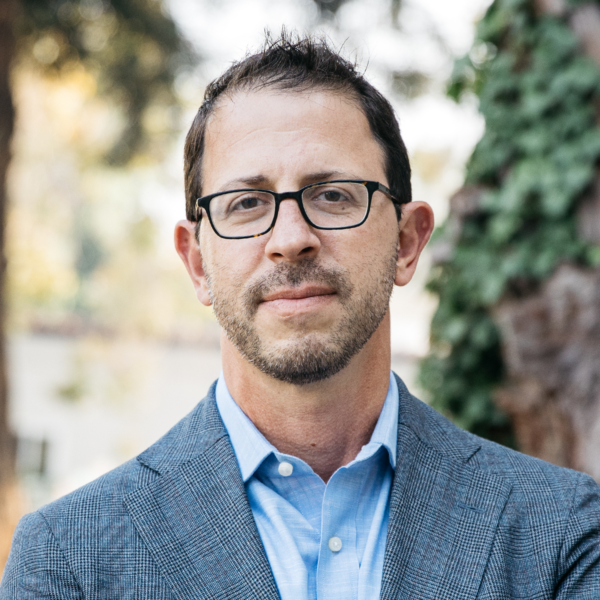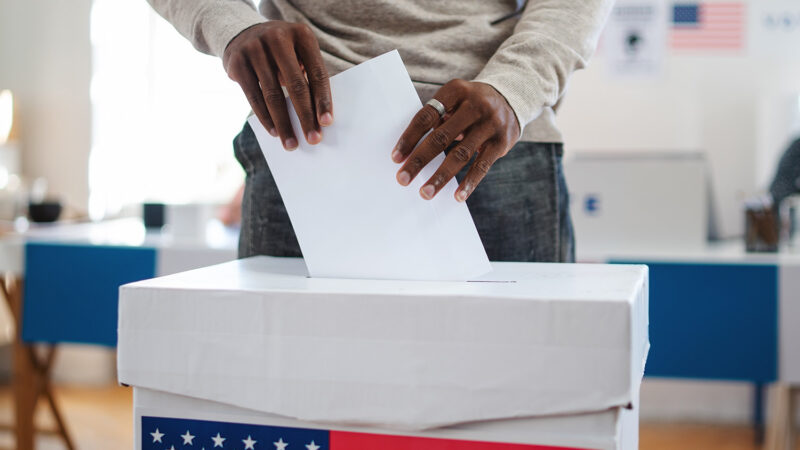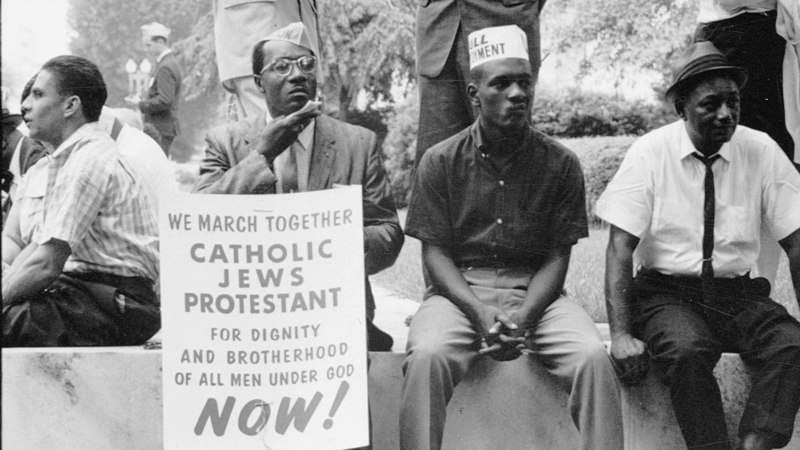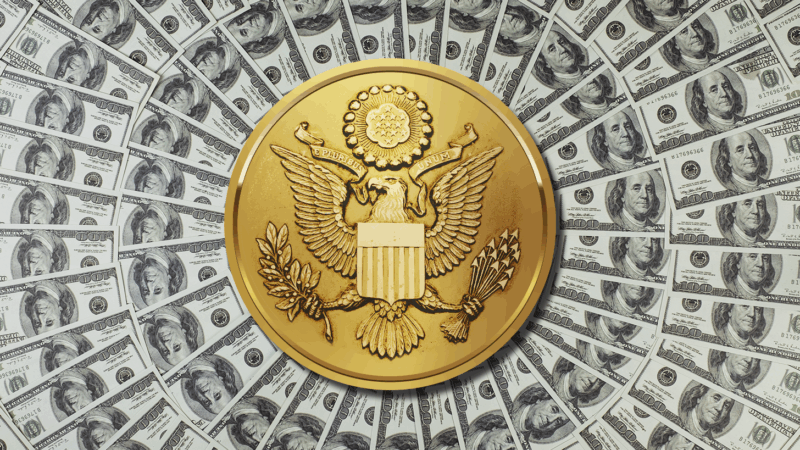Ian Bassin is co-founder and Executive Director of Protect Democracy. He previously served as Associate White House Counsel, where he counseled the President and senior White House staff on administrative and constitutional law.
The National Task Force on Election Crises
- July 4, 2021
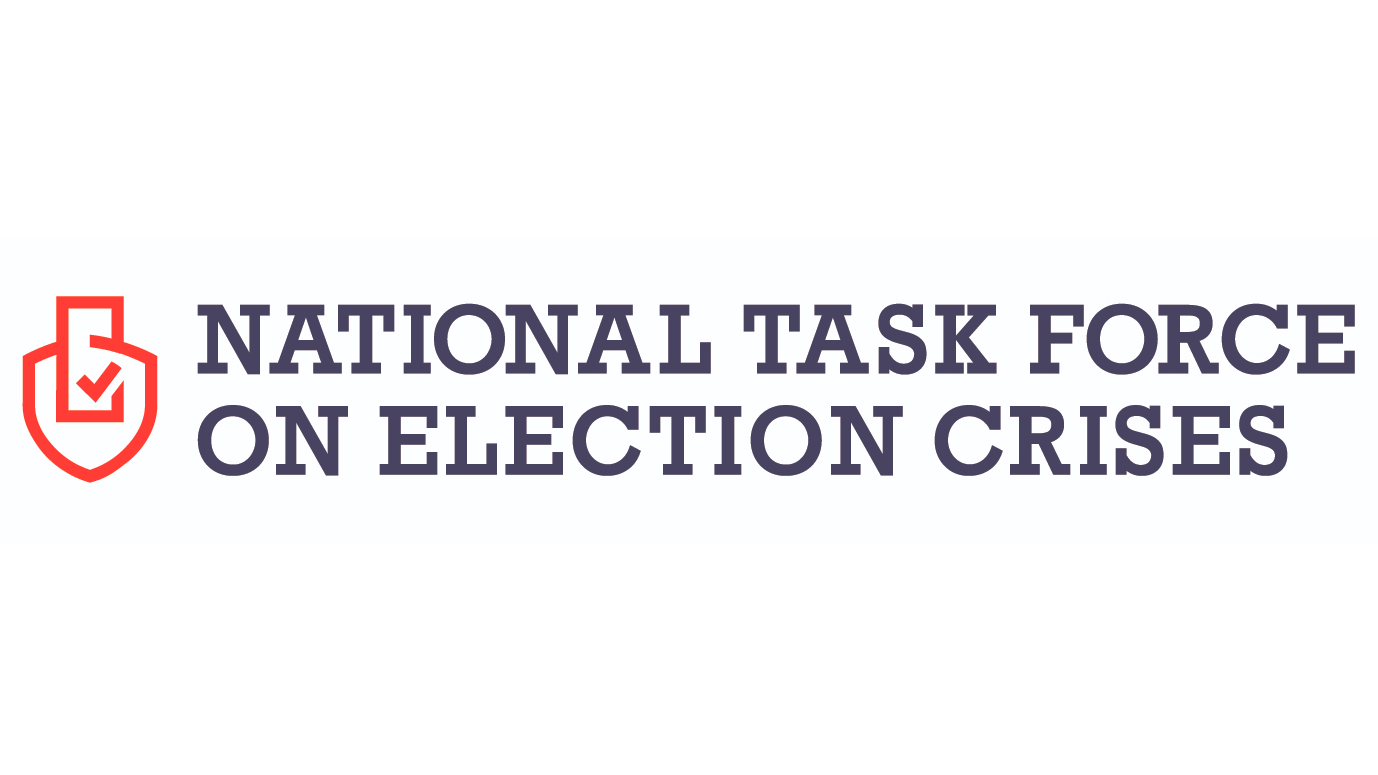
Becca Leviss also contributed to this analysis.
As the 2018 midterms approached, our primary concerns (along with many others) revolved around the possibility that Russia might once again try to attack our elections, as they did in 2016. So, late in the cycle, and very informally, we organized a small group of some of the nation’s leading election law experts to be ready to speak with a joint voice in the immediate aftermath of the election should Russia succeed in disrupting the election in unprecedented ways for which there was no playbook on how to respond.
Thankfully, the 2018 midterms came and went without a major disruption. But the process made clear to us that if a crisis had emerged, our informal, last minute, small coalition would have been woefully unprepared. American Enterprise Institute scholar Norm Ornstein, who was part of that small group, had warned of just that at the time in a piece in the Washington Post, entitled: “Our elections are wide-open for a constitutional crisis.” In the piece, he explained “We have no Plan B… if a national election is disrupted.” So in early 2019, we began assembling a more robust and extensive group and effort to prepare for the possibility of a crisis, giving us two years to prepare for the 2020 election.
We called the group the National Task Force on Election Crises. The Task Force became a cross-ideological, cross-sector body of more than 50 trusted experts on election law, election administration, national security, cybersecurity, social media, emergency response, continuity of government, transfers of power, voting rights, public health, and election protection.
The concept behind the Task Force was for a cross-ideological group of experts to anticipate potential crises and craft best practice responses in advance, behind a veil of ignorance, so that if a crisis did come to pass, the group would have an authoritative basis from which to disseminate clear guidance and recommendations that would carry weight in the chaos, and make it more difficult for a bad actor to take advantage of the confusion.
The Task Force began mapping out as many as 65 different potential crisis scenarios in mid-2019, narrowing that down to roughly ten that it invested in building out protocols for responding to by the end of that year. And then a crisis struck: a global pandemic (which had actually been one of the original 65 crisis scenarios, though it had been cut in the winnowing down to ten). As one profile of the Task Force notes, in the words of our Executive Director, in early 2020 “we went from a world with an election crisis possible to one where there is an election crisis.”


With the COVID-19 pandemic presenting an actual threat to the ability to run an election, the Task Force launched publicly in March 2020 with a set of recommendations and best practices for how states should ensure safe voting practices in the time of a pandemic, including expanding absentee voting options, curbside voting and early voting, and how to best communicate to voters changes in electoral procedure.
The Task Force was never focused on which candidate should win the election. Its mission from the start was to prevent and mitigate a range of election crises by calling for critical preventative reforms to our election systems. The only electoral outcomes the Task Force advocated for were free, fair, and safe elections in the United States. Towards that end, the Task Force played a crucial role in protecting the 2020 election by successfully executing a five-pronged strategy:
- Educating key state and federal election officials and elected leaders on how to prepare for a range of crisis scenarios, including the potential abuse of provisions in the Electoral Count Act to subvert the election results, which was central to the January 6 insurrection.
- Briefing key media organizations on potential election crises, how to accurately cover issues like the “blue shift/red mirage,” and pushing news organizations to plan ahead for how to cover election night, especially under the accurate assumption that a candidate might try to prematurely claim victory. Between October 1, 2020 and January 15, 2021, the Task Force held 18 press briefings for 745 unique attendees, including 333 journalists from 171 different outlets. Many outlets sent multiple journalists: for example, ABC (8), AP (5), LA Times (6), NBC (8), CNN (5), Wall Street Journal (5), Time Magazine (6), Washington Post (9), and USA Today (11).
- Briefing key tech and media companies—including Apple News, Google, Facebook, Reddit, Twitter, TikTok, and Snapchat—on how to improve their election coverage and respond to election misinformation, leading several companies to set up direct hotlines between their top election security officials and the Task Force.
- Building a messaging army of hundreds of leaders nationally and in eight key states to speak as one unified public voice using Task Force-coordinated messaging before and during the crisis, which resulted in unified messaging across various public spheres to “Count Every Vote” while the presidential election was still being determined.
- Developing and sharing cross- partisan, multifaceted expertise to build out and disseminate the nonpartisan policy research that underpinned all of the Task Force’s efforts and prepared us to be ready for the crises that would most likely occur.
Following both the 2020 primary and general elections, the Task Force performed after-action autopsies on both and released policy recommendations for making future elections stronger and more resilient. The Washington Post editorial board endorsed those recommendations as a “good starting point” for reform by the Biden administration and Congress.
Related Content
It can happen here.
We can stop it.
Defeating authoritarianism is going to take all of us. Everyone and every institution has a role to play. Together, we can protect democracy.
Donate
Sign Up for Updates Sign Up for Updates
Explore Careers Explore Careers
How to Protect Democracy How to Protect Democracy
